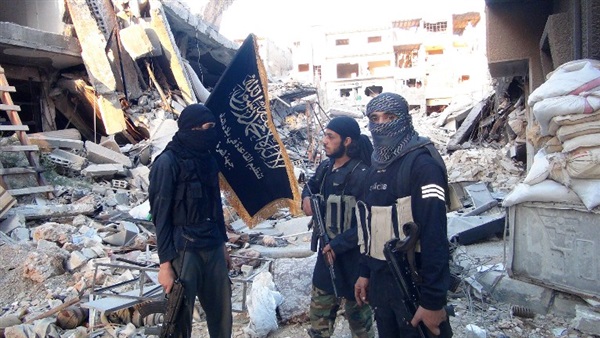Where will Syria's terrorists go after battle in Idlib?

Syria prepares to get out of its crisis, regardless of whether the leaders of the main players in it, namely Russia, Iran and Turkey, agree on a ceasefire in Idlib or not.
Syria had been at the center of international
attention over the past seven years. Nonetheless, its war seems to be close to
an end, despite difficulties.
The world's attention is now focused on the northern
Syrian city of Idlib which was overrun by militants on March 28, 2015. The city
is the last militant bastion in Syria. By liberating Idlib, the Syrian regime
will have controlled almost all Syrian territories.
Idlib is fast becoming at the center of international
attention simply because its future will have a huge impact on the future of
the Syrian crisis.
United Nations Envoy to Syria Staffan de Mistura held
a press conference on August 30, following three months of silence. He
estimated the number of terrorists fighting within the ranks of Tahrir al-Sham,
the largest faction controlling Idlib, at 10,000.
He described Tahrir al-Sham elements as the
"al-Nusra Front and al-Qaeda terrorists". However, he warned against
the ability of the Syrian government as well as the front to manufacture
chemical weapons, and chlorine, in particular.
De Mistura inherently backed the right of the Syrian
state to liberate its territories of terrorist presence. In this, he agrees
with Russia.
The United States, for its part, had a different view.
Secretary of Defense James Mattis said his country did not have any information
that the opposition had the ability to manufacture chemical weapons. He said
the US administration would immediately hold the Syrian regime responsible in
case these weapons were used in Idlib.
Turkish President Recep Tayyip Erdogan spoke a similar
language. He described in an interview with the Turkish daily Hurriyet the
operation in Idlib as "tough".
"If rockets start falling down on the city, God
forbid, a massacre will happen in it," Erdogan said.
Russia's language was, meanwhile, one of escalation.
Moscow wanted to assert the fact that it is the party with the final say in the
Syrian crisis by backing the right of the Syrian regime to strike the hideouts
of the terrorists. Russian President Vladimir Putin rejected a proposal that
Idlib continues to be under the control of the terrorists in coordination with
the Syrian government.
Russian Deputy Foreign Minister Sergei Ryabkov said
Russia's European partners know well that this strategic Syrian city cannot
continue to be under control by the terrorists.
"They also know that bringing the situation in
Syria back to normal makes it necessary for this city to be liberated," he
said.
Crucial battle
The Libyan army started an operation to liberate the
northeastern city of Dernah in May this year, after the city turned into a
concentration point for terrorists, especially those affiliated to al-Qaeda,
escaping from other parts of Libya. Dernah was also the last point outside the
control of the Libyan army. This meant that Dernah's liberation would mean the
success of the operation for the liberation of the eastern part of Libya as a
whole.
Idlib is a very similar case. The border city is also
a concentration point for terrorists.
Turkey wants to control the city by backing the
factions active in it in its bid to sabotage Kurdish aspirations for founding a
state. This was why Turkey became involved in the Syria crisis from the very
beginning.
The liberation of Idlib will prove futile all Turkish
efforts over the past seven years. The bombing of Idlib may also force its
residents, estimated by the UN at 3 million, to flee to areas controlled by
Turkey in the city.
Russia believes that the liberation of all Syrian
territories will mean nothing without the liberation of Idlib. Russia has been
striking areas controlled by Tahrir al-Sham since Tuesday to pave the road for
Syrian ground troops to enter the city.
Where to go?
Russia and China want to totally eliminate the
terrorists in Syria, lest those from Chechnya and China should return home
after the war in Syria comes to an end. The US, however, wants to keep the
terrorists in some camps in preparation for enlisting their services in the
future.
Turkey and Qatar, which spent huge amounts of money on
those terrorists in the past years, may resort to moving them to other volatile
areas.





